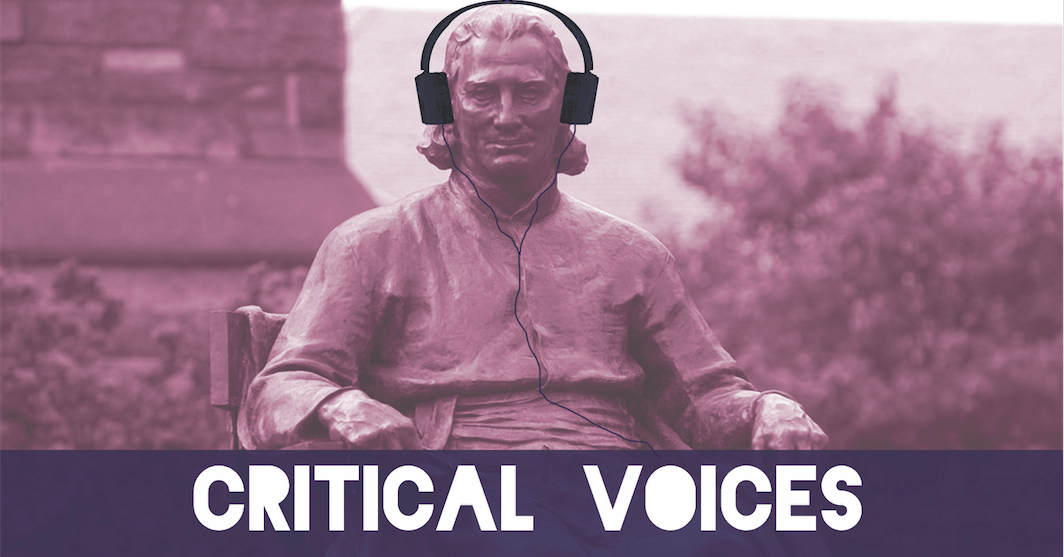The long-awaited return of America’s favorite folk-rock Irishman does not disappoint. Andrew Hozier-Byrne, known better simply as Hozier, rose to prominence in the music scene following the release of his Grammy-nominated single “Take Me to Church” back in 2013. Since his self-titled debut-album released the following year, the artist’s discography has remained a surprisingly small collection of work until this month. Released on Sept. 6, Hozier’s new EP Nina Cried Power delivers on everything the artist was originally beloved for, while simultaneously expanding in scope and emotional delivery.
Often in the industry there is an unfortunate tendency for artists, after a breakout success, to follow up with a sophomore album that leaves behind their original charm and unique qualities. Rather than forging their own path and developing their own personal style, bands will choose to play it safe and simply produce a less compelling repeat of their original success. Hozier does not fall into this trap. While Nina Cried Power certainly calls back to many of the signature elements of his 2014 album, featuring the artist’s characteristic gospel harmonies, electric guitar, and poetic lyrical work, the EP is by no means a cash-in on his previous fame. On the contrary, tracks like “Shrike” or “NFWMB” prove that he has leaned into this uniqueness, incorporating haunting acoustic work that draws in the listener. Sporting four tracks in total, each song brings something a little different to the table while still adhering to an overall theme: challenging the status quo.
The opening track, for which the EP itself is named, is an impressive protest anthem featuring R&B singer and civil rights activist Mavis Staples. Amounting to a rallying cry in the fight for racial and gender equality, Hozier invokes the names of Nina Simone, Marvin Gaye, John Lennon, Curtis Mayfield, and more all while a constant snare beat and gospel chorus echoes him in the background. Staples is a particularly impressive addition to the piece, still bringing just as much energy as she did in the ‘50s and ‘60s.
In an interview with Rolling Stone, Hozier shared his motivation in writing this piece particularly. Especially in the wake of growing nationalism worldwide and, as he described it, the “furnace of discourse” that defines this generation of politics, Hozier uses Nina Cried Power to highlight his belief that “The fights that took place 100 years ago or 200 years ago for whatever—civil rights, workers’ rights, etc.—don’t stop.”
If there were any way to follow up the themes and power behind “Take Me To Church,” then “Nina Cried Power” would certainly fit the bill. Where a large portion of artists are often content with hi-hat beats or heavily processed bass, the arrangement here holds no punches as strings, piano, and even a wonderfully incorporated organ are weaved together to produce something incredibly enjoyable to listen to.
This powerful draw isn’t just unique to the first track either. “Shrike” also sports a compelling use of the violin and cello, while simultaneously letting Hozier do what he does best on the acoustic guitar. “NFWMB” has much of the same excellence to offer, only this time with a darker, more chilling guitar and piano combination reverberating throughout. All the while, “Moment’s Silence (Common Tongue)” is able to take the complete opposite approach, blending electric blues guitar with bells and another choir, creating something as wonderful as it is weird.
If there’s any takeaway from this EP, it’s that Hozier is at his best when he’s in the studio experimenting, arranging, and giving us all he has to offer. Short as it may be, Nina Cried Power is entrancing thanks to its emotional honesty and sense of purpose. As the artist himself states in the titular track’s chorus, “It’s not the song, it is the singing./It’s the hearing of the human spirit ringing.” Undoubtedly, this holds true; Hozier’s spirit is heard ringing throughout, unafraid of the world and ready to fight whatever battles lie ahead of it.





